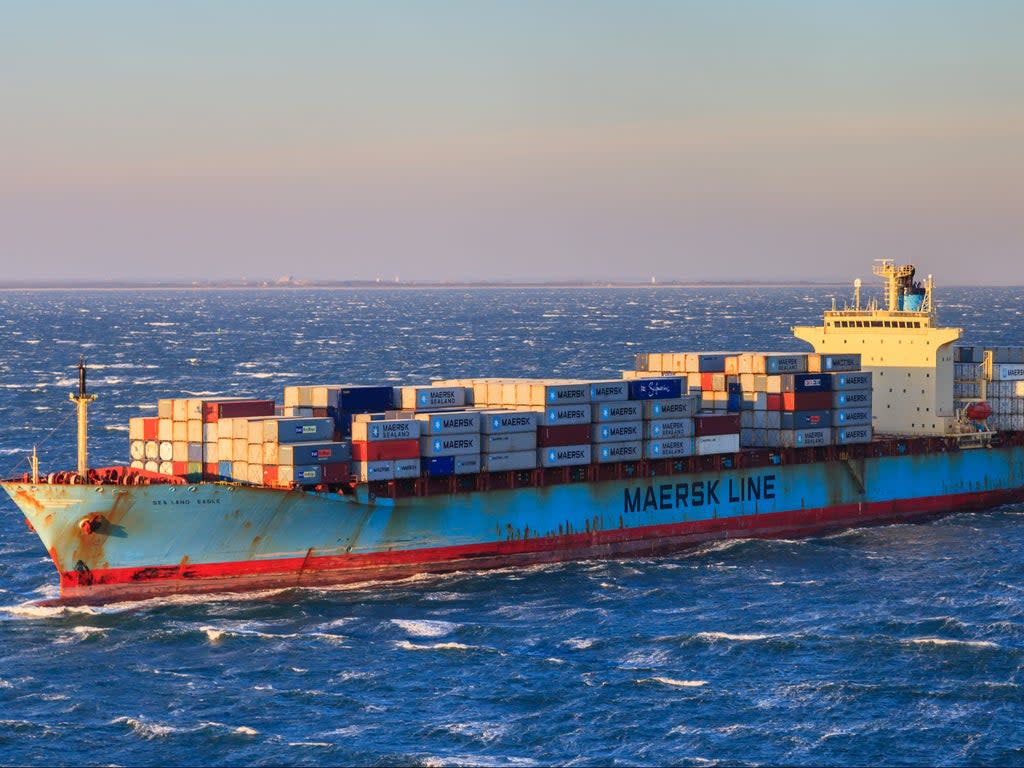Maersk cuts decarbonisation target by decade due to rising demand for clean transport

The world’s biggest shipping company AP Moller-Maersk has announced it is bringing its net zero target forwards to 2040, 10 years earlier than the target it set for itself of 2050 back in 2018.
The company has said the acceleration in de-carbonising its supply chain was due to rising consumer demand for environmentally-friendly transport, and improvements in technology.
Around 90 per cent of all global trade is done by sea, and global shipping pollution accounts for 3 per cent of all greenhouse gas emissions.
The desire for climate-friendly shipping has been driven by major firms including Ikea and Amazon, Maersk’s chief executive of Fleet and Strategic Brands Henriette Hallberg Thygesen told Reuters.
Last year Maersk announced it was investing in new ships capable of running entirely on methanol, with the first planned to come into service in 2023, but it has now said a quarter of its entire fleet will run on cleaner fuels by 2030.
Maersk chief executive Soren Skou said: "As a global provider of end-to-end logistics services across all transport modes, it is a strategic imperative for Maersk to extend our net zero ambition to the total footprint of the business.”
He added: "The science is clear, we must act now to deliver significant progress in this decade. These very ambitious targets mark our commitment to society and to the many customers who call for net zero supply chains."
The company has set ambitious interim goals for 2030, which will see major reductions in emissions over the next eight years.
These include a 50 per cent reduction in emissions for each container transported by the Maersk Ocean fleet, as well as a 70 per cent reduction in absolute emissions from the firm’s fully controlled terminals.
In a statement the company said that depending on its growth, this will lead to absolute emissions reductions of between 35 per cent and 50 per cent from a 2020 baseline.
The move has been welcomed by environment campaigners.
Dr Doug Parr, policy director at Greenpeace UK told The Independent: “There are some sectors that are widely seen as more challenging in terms of cutting planet-heating emissions, and shipping is definitely one of them. And that’s a problem because even though it makes up about 3 per cent of global emissions, its contribution is set to grow.
"Whilst governments and international agencies have messed about and looked the other way, at least Maersk, driven by the demands of consumer-facing companies and new possibilities of clean technology, is trying to cut through the inertia.”
He added: "The thing is, Maersk should be doing this with the proactive support of major governments mandating efficient shipping and clean fuels instead of having to swim against a tide of indifference."

 Yahoo News
Yahoo News 
